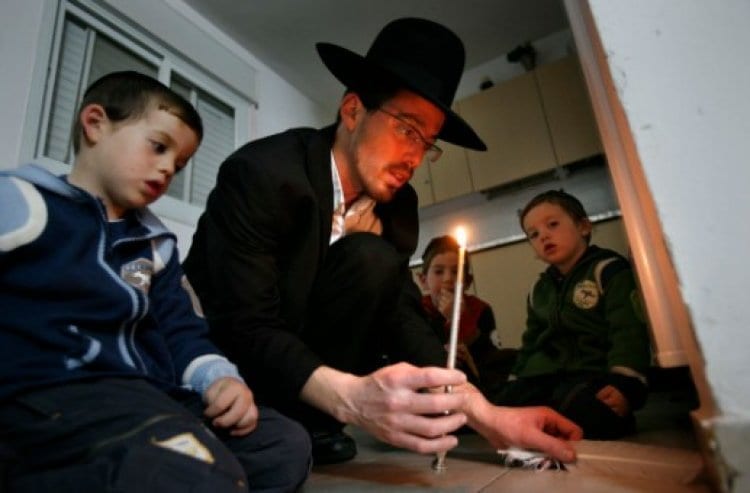Time rushes by all too quickly. A case in point would be the long-anticipated Yom Tov of Pesach, which seems to have come and gone in the blink of an eye. Even the many who trembled at the daunting task of preparing for and executing the many details of its celebration—accommodations for children and grandchildren, planning of menus and massive cleanup duties—surely concede that once Pesach made its appearance, they would have preferred it hadn’t taken its leave so quickly after a mere eight days.
As a member of the older generation, I find it fascinating to observe the relationship to time that is a product both of a given situation and of one’s stage in life. Consider how painfully slow time seems to move when you are waiting for news of a loved one in surgery or a baby about to be born. Conversely, try as we might, we cannot seem to hang on to the time spent visiting with children or savoring other joyous occasions. The conclusion we must arrive at is that the concept of time and how we interact with it is totally subjective—ours to define.
Consider Henny, a middle-aged woman who observed a hassled young mother scolding her little one in the checkout lane at a grocery. Henny suddenly had a flashback of a similar incident with her now-grown children. She could not ignore her urge to turn to the young woman and say, “I know that this is unsolicited advice, but I strongly encourage you to enjoy these moments, because before you know it your children will be grown and out of the house.” Now, I don’t know if her counsel was welcomed, but I do know that I keep a picture on my refrigerator of my sons as youngsters hugging each other, and whenever I look at it, it tugs at my heart.

They were so adorable, and I know for sure that I didn’t appreciate them enough at the time. I was so busy, as are many young wives and mothers, with concerns for the future that the precious moments of the present were sometimes overlooked and lost. I, like Henny, often wish to stop women who are so intent on the fast track and urge them to stop, breathe and savor the moment.
Our sefarim teach that every moment in time is a world unto itself, never to appear again in existence. It is distinct from the moment that precedes it and the one that follows it. As such, each moment pleads with the human being to fill it with meaning, relish it and give it perpetuity. One of the benefits of getting older (or more mature, as some would insist on calling it) is that hopefully we acquire the wisdom of experience.
I just spent a wonderful Pesach with my daughter Baila, her children, many of her grandchildren and members of her extended family. It was a glorious time, replete with nachas, culinary delights and a great deal of activity and commotion. Most significantly, however, I was again struck by the extraordinary resilience and patience of my remarkable daughter (may Hashem bless her and bring joy to her life). Her focus on the priorities carried the Yom Tov and was nothing short of heroic. I must say that at the conclusion of it all, while others may have been eager to finally eat pizza and bagels, I was sad to see Yom Tov end. The last Yaaleh Veyavo of Minchah left me teary-eyed. The all-too-quick passage of time gave me pause.
Upon reflection, I deliberately chose to adopt the perspective of one of the chasidic luminaries of our illustrious past, as recounted in the following story:
The Rodishitzer Rebbe once visited an inn where he was assigned a certain room. Later, the chasidim heard him dancing all night long. Knowing how exhausted the Rebbe had been from the journey, they couldn’t contain their curiosity and questioned him in the morning. In response, he summoned the proprietor and inquired about the origin of the clock in the room he had stayed in. The innkeeper explained that many years earlier the son of the Chozeh of Lublin had passed through, and in lieu of payment had given the innkeeper’s father that clock, which he had later inherited. “That explains it!” the Rodishitzer exclaimed. He explained that the clock had kept its rhythm differently than other clocks. The ticking of most clocks, he explained, is depressing, signaling the passage of time, as if to say, “One moment gone, another moment gone…” This clock, however, had an upbeat tone, as if to proclaim, “One moment closer to Mashiach, another moment closer to Mashiach…” Indeed, the sound of its ticking had inspired him to dance all night. Time is fluid and marches on. Unquestionably, though, how we configure the ticking of our personal clock is up to us. Once again, it all comes down to our choice and perspective.




